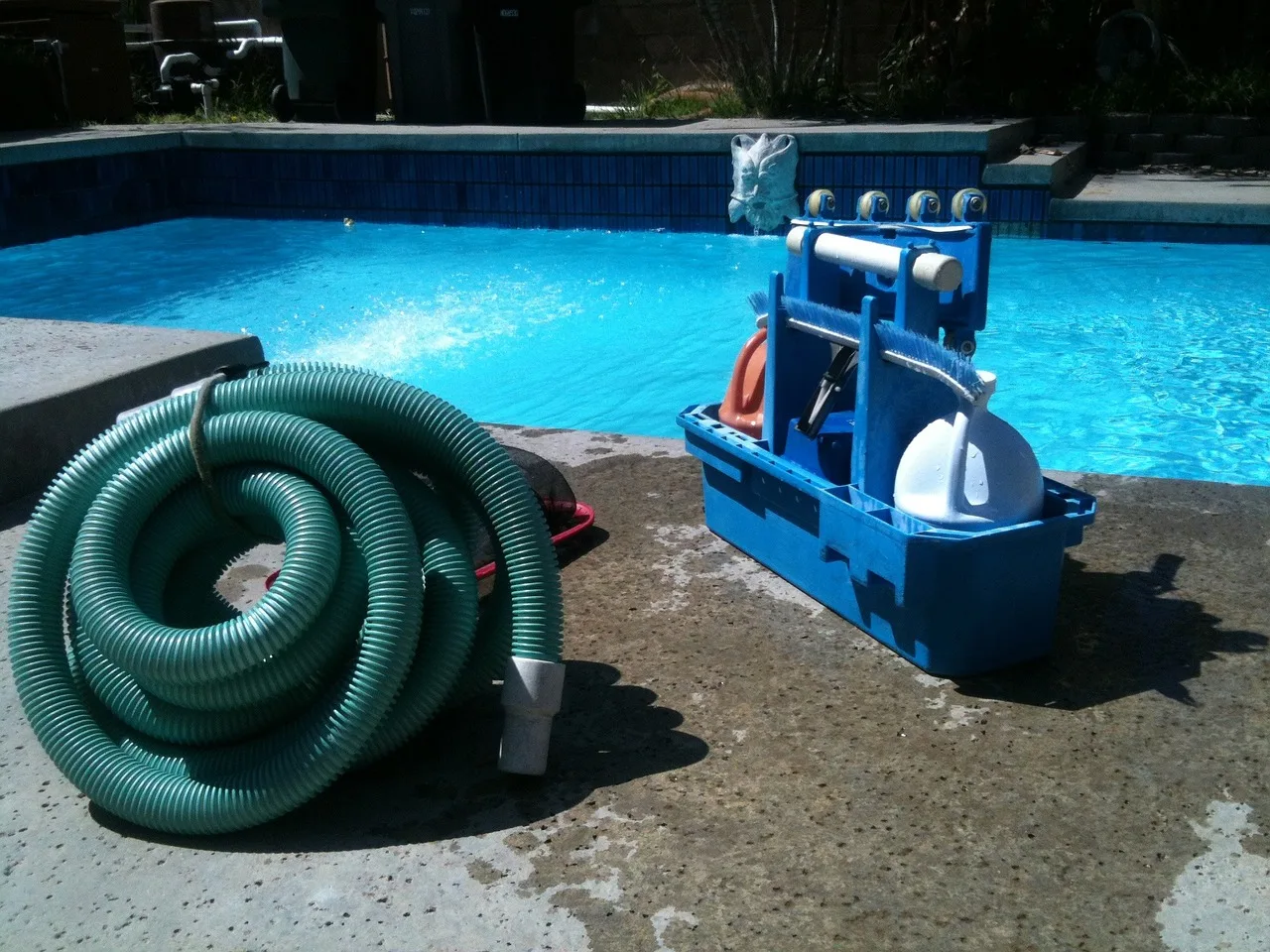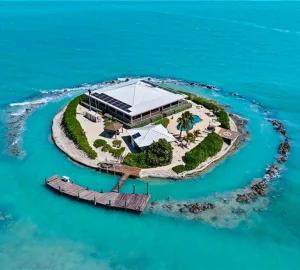As a pool owner, you know the joy that a sparkling, clean swimming pool can bring. However, maintaining that crystal-clear oasis isn’t always easy. The task involves more than just adding the occasional chlorine tablet. Whether you’re a new pool owner or a seasoned veteran, this guide is here to help you navigate the crucial steps to keep your swimming pool pristine all year round.
Regular Skimming and Cleaning
Regular skimming and cleaning is a fundamental step to maintaining a clean swimming pool. Skimming, the process of removing debris from the water surface, prevents unwanted particles such as leaves, grass, and insects from sinking and contaminating the pool. You could also hire a professional pool cleaner to do this with the proper equipment and technique. This enhances the pool’s appearance and makes swimming more enjoyable.
On the other hand, brushing the pool walls and floor helps to dislodge algae and prevent its growth. Vacuuming then removes this dislodged algae along with any sunken debris. Cleaning your pool filter regularly ensures efficient water circulation and filtration, further enhancing water clarity. In essence, regular skimming and cleaning not only maintain aesthetic appeal but also prolong the pool’s lifespan by preventing potential damage caused by debris and algae. Remember, a clean pool is a healthy pool.
Vacuum the Pool
Vacuuming plays a vital role in maintaining the cleanliness of your swimming pool. It complements skimming by going deeper, eliminating debris and particles that have sunk to the bottom, which skimming cannot reach. By doing so, vacuuming prevents the accumulation of grime and sediment that can dull the pool’s water and make the surface slippery and unsafe.
Furthermore, vacuuming is crucial in the battle against unwanted pool algae. While brushing can dislodge algae from pool walls and floors, it’s the vacuum that ultimately removes these dislodged particles from the water. This process helps to maintain a clean, healthy, and algae-free environment for swimmers. Regular vacuuming also aids in maintaining clear water by reducing the burden on the pool filter, leading to better filtration and circulation. In conclusion, to maintain a clean, safe, and inviting pool, vacuuming should be a regular part of your pool maintenance routine.
Maintain Optimal Water Chemistry
The water in your swimming pool contains various chemicals. These are the following:
- Chlorine
- Bromine
- pH increaser (Sodium Carbonate)
- pH Reducer (Muriatic Acid)
- alkalinity increaser (Sodium Bicarbonate)
- Algaecides
- Calcium hardness increase
- Stabilizer (Cyanuric Acid)
- Salt
- Metal sequestrant
- Oxidizers
The right balance of chemicals prevents harmful bacteria and algae from thriving, ensuring the pool’s water remains clear and safe for swimmers. Proper chemical balance also protects the structural integrity of the pool, preventing corrosion and scale build-up that can result in costly repairs.
Additionally, balanced pool water promotes the effective function of sanitizers and enhances user comfort, preventing skin and eye irritation. Overall, optimal water chemistry contributes to the cleanliness, healthiness, and longevity of your swimming pool. Therefore, regular testing and adjustment of pool water chemistry should be an integral part of your pool maintenance routine.
Shock the Pool
This process involves adding a large dose of chlorine or non-chlorine chemicals to the pool water to kill bacteria, algae, and other organic matter. The term “shock” refers to the sudden drastic change in water chemistry. When the pool water contains contaminants, chlorine disinfectants in the water get used up, reducing the effectiveness of the sanitization process. Shocking the pool restores the potency of these disinfectants by oxidizing these contaminants, freeing up the sanitizers to do their job effectively.
Moreover, shocking helps prevent and control the growth of algae, enhancing the pool’s overall cleanliness and clarity. It’s recommended to shock your pool once a week under normal conditions and more frequently if the pool is used heavily or after a heavy rain or windstorm. In summary, shocking is an essential part of pool maintenance that ensures a sparkling, healthy, and swim-ready pool.
Clean the Filter
The filter plays a pivotal role in keeping your pool’s water clean by trapping dirt, debris, and other microscopic substances that contaminate the pool water. Over time, these trapped materials can clog the filter, reducing its efficiency and leading to poor water circulation and filtration. By cleaning your pool filter regularly, you ensure that it continues to function optimally.
An efficient filter translates to clearer, cleaner, and safer pool water. Furthermore, cleaning your filter extends its lifespan, saving you the cost of frequent replacements. In conclusion, regular filter cleaning is essential for maintaining a sparkling, healthy, and inviting swimming pool.
Monitor Water Levels
The water level affects the efficiency of the skimmers, which are designed to remove debris from just beneath the surface. If the water level is too high, the skimmers can’t effectively remove floating debris, allowing it to sink and contaminate the pool.
Conversely, if the water level is too low, the pump can draw in air, causing it to run dry and potentially burn out. Regularly checking the water levels and adjusting as necessary helps ensure optimal skimming action, proper pump operation, and balanced water chemistry. It also prevents unnecessary wear on your equipment. In essence, maintaining the correct water level in your swimming pool is an essential step toward a clean, safe, and inviting pool.
Inspect and Maintain the Equipment
Proper maintenance and regular inspection of pool equipment a crucial aspects of keeping your pool clean and operational. This entails examining pool pumps, heaters, and filtration systems for any signs of wear and tear, leaks, or malfunctions. Potential issues can be detected early and addressed promptly, avoiding significant problems that could lead to water contamination or pool closure. A pool can be very beneficial for your health, but without addressing these problems, you won’t feel these effects. Consistent equipment maintenance also ensures optimal efficiency.
For instance, a well-maintained pump maintains effective water circulation, discouraging algae growth and facilitating even distribution of sanitizing chemicals. Regularly servicing your filtration system prevents clogging and ensures effective debris removal. Ultimately, systematic equipment maintenance and inspection contribute to a clean, safe, and enjoyable swimming experience.
By embracing these strategies, you can uphold the crystal clarity of your pool, ensuring it’s always ready for a refreshing dip. Remember, a clean pool is a healthy pool, and its upkeep is a testament to your commitment to hygiene and safety. With a well-maintained swimming pool, your backyard will remain the prime spot for summer fun, relaxation, and enjoyable gatherings. Enjoy the sparkling blue water!






